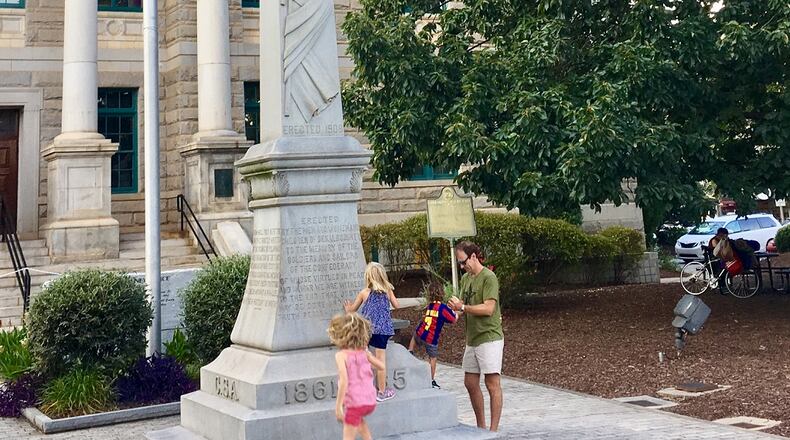If Mother Nature had a home address, deputies would have served up millions of restraining orders in the last few weeks.
In late August, Hurricane Harvey ended a disastrous run across the Atlantic by flooding Texas.
Then Hurricane Irma swept across the Caribbean and nailed Florida and Georgia.
Two major earthquakes rattled Mexico this month.
Hurricane Maria just ripped into Puerto Rico, destroying the island's power grid.
As a friend said on Facebook, "the earth is broken."
The surge in storms has people talking about "climate change." Scientists say humanity's burning of fossil fuels releases carbon dioxide which causes "global warming," an increase in the planet's temperature. The additional heat could make storms more common, stronger and wetter, but experts debate the details.
Hurricanes existed before humans started pumping gas, of course.
A big one in 1559 doomed the first attempt by Europeans to settle in America. A Spanish fleet landed near modern-day Pensacola, Florida with the intention of establishing settlements there, north Georgia, and the Atlantic Coast. The hurricane struck before they could unload their food supplies. Experts theorize the demise of the Spanish colony delayed the arrival of Taco Tuesday in the Atlanta area by hundreds of years.
You can open a big ol' can of worms by asking if hurricanes are now stronger and more common.
With back-to-back years of hurricanes worrying Georgia, I'd say "yes."
But the most active season ever recorded was in 2005 when seven major hurricanes, including Katrina, killed thousands of people.
After 2005, things calmed down. Before Hurricane Harvey, the mainland U.S. had not been hit by a Category 3 or higher "major hurricane" for 12 years.
Will the next few years bring more hurricanes? Predictions, like Hurricane Jose, are all over the map.
One storm sure to get stronger is one currently blowing across the South. What will local governments do with Confederate monuments in a changing political climate?
Decatur commissioners voted unanimously in support of removing a Confederate monument downtown, but the soaring obelisk built in 1908 is owned by DeKalb County. The county can't move it because Georgia law protects Confederate memorials.
I figure the chances of state law getting changed equal those of finding a Civil War reenactment in Pakistan.
Some have suggested building a museum to house all the statues, markers and monuments now under attack, but does hiding a problem fix it?
Life's never that easy. History, like hurricanes, can't be wished away.
About the Author
Keep Reading
The Latest
Featured



